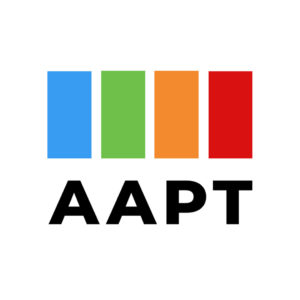Calls for Abstracts and Essays
Current Calls:
Volume 11
CALL FOR PAPERS
Are We Having Fun Yet?
Joy and Playfulness in Teaching & Learning Philosophy
Edited By
Rebecca Scott
Paper Submission Deadline: Monday, January 13, 2025
American Association of Philosophy Teachers Studies in Pedagogy is an anonymously peer-reviewed annual journal dedicated to publishing thematically focused volumes of original works on teaching and learning in philosophy.
We are seeking traditional essays and short personal reflections on the topic of playfulness and joy in the teaching and learning of philosophy. When, why, and how might we make teaching and learning philosophy fun?
- Traditional essays (typically 5000–8000 words, but any length is permitted)
- Short personal reflections (approximately 1,500–3,000 words)
Potential topics for exploration include (but are not limited to) the following:
- Joy and Playfulness: the role of joy in teaching and learning philosophy; navigating the limits of joy, e.g., when philosophy requires that we be a “killjoy”; whether and how to make philosophy fun; explorations of philosophical play
- Creativity: teaching philosophy with art, literature, or music; engaging philosophy through non-traditional genres and media; teaching philosophical creativity
- Wonder and Curiosity: explore the cultivation of philosophical dispositions such as curiosity and wonder
- Humor: the role of jokes and laughter in learning; strategies for navigating the risks of humor
- Movement and Corporeality: teaching philosophy through dance, movement, and sport; attending to the embodied nature of teaching and learning
- Imagination and Utopia: teaching philosophy through imagination; teaching with thought experiments; using imagination in social and political philosophy; reimagining social and epistemic norms
- Game-based Pedagogies: teaching philosophy with games; adapting games for use in the philosophy classroom; learning through simulation and roleplay; incorporating playful activities and assignments into philosophy classes
- Joyous Teaching: What keeps you/teachers happy? How can drudgery be minimized? What makes you laugh/enjoy yourself most while teaching, and how can others achieve more joyous teaching?
To submit an essay, reflection, or practical resource go to https://aaptstudies.org/submissions
Direct inquiries about this call or Volume 11 to Rebecca Scott, rscott1@harpercollege.edu
Direct general inquiries about AAPT Studies in Pedagogy to editor@aaptstudies.org
Volume 12
CALL FOR PAPERS
Teaching Graduate Students
Edited By
Melissa Jacquart and Lucas Dunlap
Submission Deadline: Monday, June 2, 2025
American Association of Philosophy Teachers Studies in Pedagogy is an anonymously peer-reviewed annual journal dedicated to publishing thematically focused volumes of original works on teaching and learning in philosophy. For volume 12, we seek traditional essays as well as short personal reflections from anyone with relevant expertise, but especially from faculty teaching in graduate programs and philosophy graduate students. Potential topics for exploration include (but are not limited to) the following:
Teaching Graduate Students to Teach
- Teaching Basics: (1) writing a syllabus, selecting course content, constructing assignments, building exams, articulating rubrics, and grading. (2) How to lecture, moderate a discussion, advance inclusivity, and effectively use a learning management system.
- Advanced Teaching: learner-centeredness; experiential, service, and community-engaged projects; case studies and problem-based learning; mastery-based pedagogies; universal design for learning; transparent alignment; expert/novice studies; the science of learning; metacognition; motivation; etc.
- The Graduate Seminar on Teaching: what should or shouldn’t be included in a seminar designed to help graduate students become better teachers? Why?
Enhancing Graduate Student Learning
- Learning Activities: pedagogies and assignments appropriate for advanced learners
- Skills Development: the art of asking a good question; how to listen humbly and charitably; etc.
- Assessment: how to assess graduate student progress, achievement, ability, etc. What alternatives to the seminar paper as the basis of assessment are successful?
- Mentoring: thesis and dissertation supervision; how to give timely and impactful feedback; etc.
- Inclusion and Wellness: how to support graduate students with respect to diversity, equity, and inclusion; mental health, wellbeing, and belonging; advocating for graduate students
- Professionalization: writing, submitting, and presenting conference papers; demystifying cultural norms of the profession/professoriate; being a good philosophical community member; preparing for the job market
- Beyond the Philosophy Professor: preparing philosophy graduate students for non-academic positions; discussion of transferable skills of philosophy
- The Graduate Program Curriculum: how should philosophy MA and PhD programs be structured? Which courses, if any, should be required (distribution, logic, language, PhD minor)? Qualifying exams or papers?
Two types of articles are welcomed for this volume:
- Traditional essays (typically 5000–8000 words, but any length is permitted)
- Short personal reflections (1,500–3,000 words)
To submit an essay or reflection go to https://aaptstudies.org/submissions
Direct inquiries about this call or Volume 12 to Lucas Dunlap, lucas.dunlap@uc.edu
Direct general inquiries about AAPT Studies in Pedagogy to editor@aaptstudies.org

